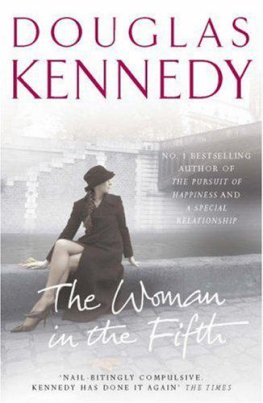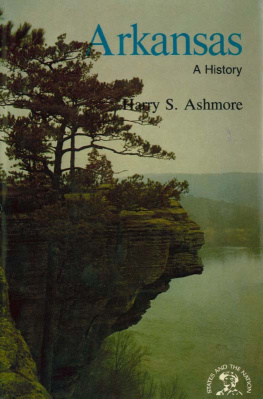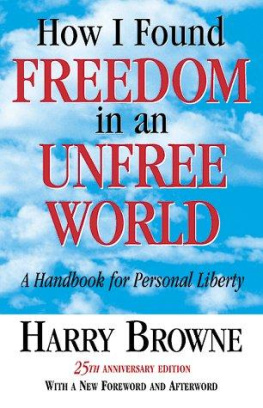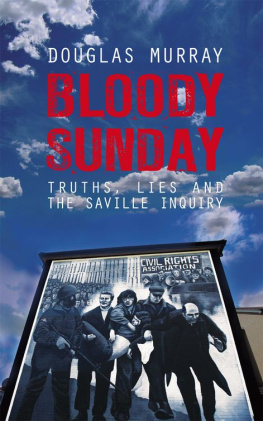
THE WILLIAM O. DOUGLAS INQUIRY INTO THE STATE OF INDIVIDUAL FREEDOM
The Center for the Study of Democratic Institutions
Morris L. Levinson, Chairman of the Board
Maurice Mitchell, President
Steering Committee for the William O. Douglas Inquiry Co-Chairpersons:
Clark Clifford Cathleen Douglas Abe Fortas David Ginsburg
Morris B. Abram
Harry S. Ashmore*
Leonard B. Boudin
Jim D. Bowmer
Ramsey Clark*
Vern Countryman
Sidney M. Davis
Thomas I. Emerson
Frances Farenthold
Harold Fleming*
Harrison Hertzberg
Lester Hyman
Eliot Janeway
Albert E. Tenner, Jr.*
Philip C. Jessup
Barbara Jordan
Edward H. Levi
Katie S. Louchheim
Morris L. Levinson*
Frances McAllister*
Robert B. McKay
Newton Minow
Clarence M. Mitchell
Maurice Mitchell*
Betty Southard Murphy
Hugh B. Patterson
Florence Douglas Persons
Bernard Rapoport*
Maurine Rothschild*
Bernard G. Segal
Kenneth S. Tollett
Sander Vanocur
Board of Review:
- Chairman: Vern Countryman, Harvard Law School
- William H. Alsup, Esq., Morrison & Foersler, San Francisco
- Professor Charles Ares, University of Arizona College of Law
- Leonard B. Boudin, Esq., Rabinowitz, Boudin & Standard, New York
- Professor Carol Bruch, University of California at Davis Law School
- Professor William Cohen, Stanford Law School
- Professor Steven B. Duke, Yale Law School
- Professor Thomas I. Emerson, Yale Law School
- Jerome B. Falk, Esq., Howard, Prim, Rice, Nemerovski, Canady & Pollak, San Francisco
- Peter M. Kreindler, Esq., Hughes, Hubbard & Reed, Washington, D.C.
- Robert B. McKay, Esq., Director, Aspen Program on Justice, Society, and the Individual, New York
- Professor L. A. Scot Powe, Jr., Georgetown University Law Center, Washington, D.C.
- Professor William Reppy, Jr., Duke University Law School
- Roger Wollenberg, Esq., Wilmer, Cutler and Pickering, Washington, D.C.
*Member, Board of Directors, The Fund for the Republic, Inc.
The William O. Douglas Inquiry into the State of Individual Freedom
edited by Harry S. Ashmore
with an Introduction by Vern Countryman
Contributors
William H. Alsup
Leonard B. Boudin
William Cohen
Vern Countryman
Steven B. Duke
Thomas I. Emerson
Jerome B. Falk
Peter M. Kreindler
Robert B. McKay
L. A. Scot Powe, Jr.
William Reppy, Jr.
First published 1979 by Westview Press
Published 2019 by Routledge
52 Vanderbilt Avenue, New York, NY 10017
2 Park Square, Milton Park, Abingdon, Oxon OX14 4RN
Routledge is an imprint of the Taylor & Francis Group, an informa business
Copyright 1979 by The Center for the Study of Democratic Institutions
All rights reserved. No part of this book may be reprinted or reproduced or utilised in any form or by any electronic, mechanical, or other means, now known or hereafter invented, including photocopying and recording, or in any information storage or retrieval system, without permission in writing from the publishers.
Notice:
Product or corporate names may be trademarks or registered trademarks, and are used only for identification and explanation without intent to infringe.
Library of Congress Catalog Card Number: 78-21438
ISBN 13: 978-0-367-27377-4 (hbk)

Justice William O. Douglas
Contents
- PART 1
FUNDAMENTAL FREEDOMS: AREAS OF HUMAN BEHAVIOR AND PERSONALITY IMMUNE FROM GOVERNMENTAL CONTROL - PART 2
FREEDOM AND LAW ENFORCEMENT - PART 3
FREEDOM AND GOVERNMENTAL EXPENDITURES TO ADVANCE THE COMMON GOOD - PART 4
FREEDOM AND THE DUTY OF THE GOVERNMENT TO CONTROL PRIVATE POWER
- PART 1
FUNDAMENTAL FREEDOMS: AREAS OF HUMAN BEHAVIOR AND PERSONALITY IMMUNE FROM GOVERNMENTAL CONTROL - PART 2
FREEDOM AND LAW ENFORCEMENT - PART 3
FREEDOM AND GOVERNMENTAL EXPENDITURES TO ADVANCE THE COMMON GOOD - PART 4
FREEDOM AND THE DUTY OF THE GOVERNMENT TO CONTROL PRIVATE POWER
Guide
Harry S. Ashmore
A lifetime of experience and reflection has supplied me with reasons for defending the faith in which I was brought up. That faith, I say again, was faith in the independent mind. Its educational consequences were belief in free inquiry and discussion. Its political consequences were belief in democracy, but only in a democracy in which the minority, even a minority of one, could continue to differ and be heard. Those who desire to conform, but are prohibited from doing so by intolerance and prejudice must be aided; the non-conformist conscience must not be stifled.
Robert M. Hutchins
Early in their careers, this deeply ingrained faith brought Robert Hutchins together with another remarkable son of the Calvinist parsonage. As dean of the Yale Law School, Hutchins made room at New Haven for a fledgling professor of business law named William Douglas, who had resigned from Columbia in protest against what he considered improper intervention into faculty prerogatives by the nation's most celebrated educator, Nicholas Murray Butler. When Hutchins moved on to become president of the University of Chicago he sent shock waves through his new constituency by offering Douglas an unprecedentedly high professorial salary. That reunion was canceled by a call from the new Securities and Exchange Commission which introduced Professor Douglas to the public service that would engage him for more than four decades.
The two came together again when Hutchins left Chicago to help organize the Ford Foundation. As president of the Fund for the Republic, the Ford subsidiary chartered to "defend and advance the principles of the Bill of Rights," Hutchins in 1959 established the Center for the Study of Democratic Institutions at Santa Barbara. Justice Douglas helped design the Center's "Basic Issues" program, joined its Board of Directors, and for many years served as chairman.
When declining health forced Douglas to leave the bench after a record tenure of more than thirty-six years, Hutchins concluded that the center ought to provide an appropriate memorial to his notable career. The old friends shared an indifference to bricks and mortar; Douglas spent as much time as possible out of doors, and Hutchins once suggested that the physical facilities of a university ought to be razed every thirty years. A proper memorial would have to be living, and, if it were to be true to the spirit of both men, functional. Hutchins found the answer in a "continuing program of inquiry and public education dealing with fundamental trends in contemporary society that affect the status of the individual citizen " In his invitation to a group of distinguished Americans to serve as the organizing committee for the William O. Douglas Inquiry into the State of Individual Freedom he wrote:











